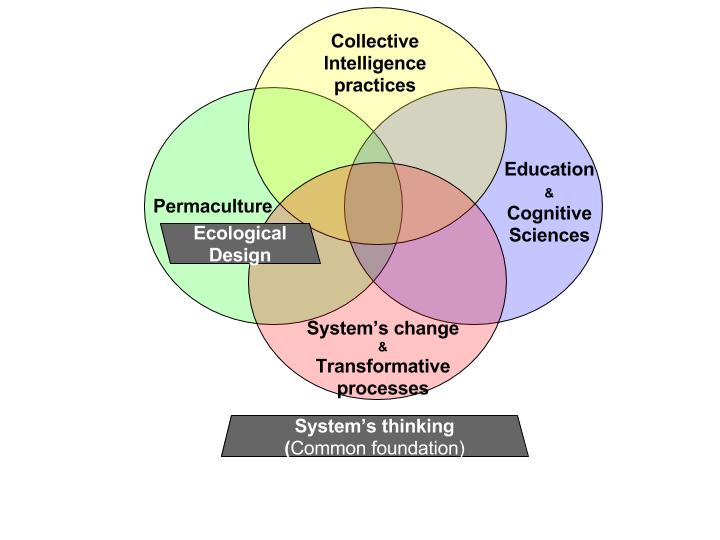by Pierre Robichaud
(This is a repost from my co-facilitator Peirre in preparation for our upcoming retreat on Permaculture and Education in Quebec March 31-April 3)
What if, for an instant, we could forgot everything we know about education? What if we could un-learn, and re-learn how to learn… individually and collectively?
We could take the risk to find creative solutions for the local and global challenge we are currently facing…
 Education has we know it been very successful in perpetuating models from the past, and keeping in place the structures from the industrial revolution and the colonialism eras. It has done so by sharing a single dominant story and (making sure) that the educated adapt to the world instead of transforming it. What I want to propose are learning solutions for serving the emergence of a new paradigm, where multiple stories co-exists, where power is distributed across people and not in the hands of a few, where citizens actively and creatively participate in co-creating together the world that they want to live in.
Education has we know it been very successful in perpetuating models from the past, and keeping in place the structures from the industrial revolution and the colonialism eras. It has done so by sharing a single dominant story and (making sure) that the educated adapt to the world instead of transforming it. What I want to propose are learning solutions for serving the emergence of a new paradigm, where multiple stories co-exists, where power is distributed across people and not in the hands of a few, where citizens actively and creatively participate in co-creating together the world that they want to live in.
Through nature-inspired systems’ design, permaculture practitioners and other social innovators around the world have been (proposing) practices to care for the planet, the people and share in a fair way. This article is a proposition to explore what educative lenses and practices could serve similar purposes, and how they can be applied as a transformative agent to shift our culture. It is directed towards those who are interested and/or engaged in the evolution of our education practices and systems, as well as facilitators, permaculture practitioners and social innovators.
To do so, we’ll explore various lenses and practices inspired from the worlds of education and cognitive sciences, collective intelligence practices as well as systems’ change and transformative processes.
By intersecting these lenses with the permaculture design practices, we can benefit from the richness of biodiversity found at the edges where multiple ecosystems meet each other.
This is a call for a posture shift from the one of holder of knowledge (educator stance) to one of creating space so that learning can happen (facilitator stance). Taking consciousness and naming it is one step, but how do we make it happen? A few keys: planting seeds of new habits and behavior / be compassionate to ourselves and other when we fall into old ways of doing / and building a network of support between practitioners that are trying to move forward together even if the path ahead of us is not predetermined.